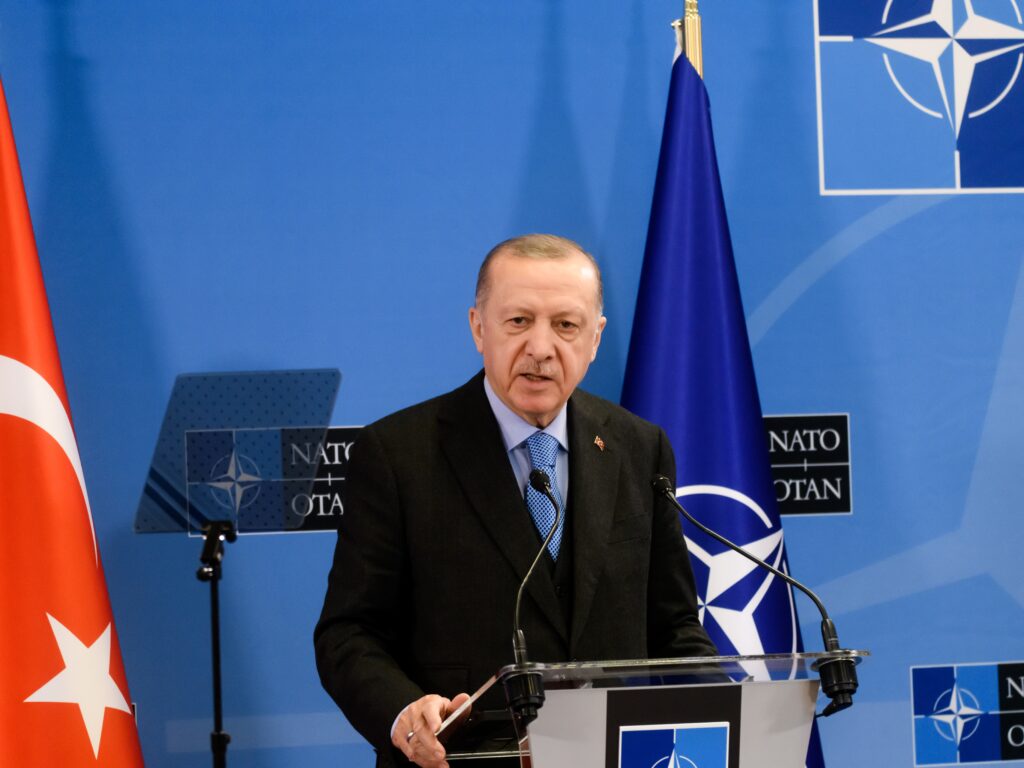
Turkey has renewed efforts to extradite 33 individuals it designates as terrorists from Sweden and Finland following the signing of a trilateral memorandum between the countries removing Turkey’s veto on the Nordic nations’ accession to NATO.
The Agreement
In the memorandum, signed on 28 June 2022, Sweden and Finland have agreed, at clause 8, to: “address Turkiye’s pending deportation or extradition requests of terror suspects expeditiously and thoroughly, taking into account information, evidence and intelligence provided by Turkiye, and establish necessary bilateral legal frameworks to facilitate extradition and security cooperation with Turkiye, in accordance with the European Convention on Extradition”
In order to facilitate this, the countries agree, at clause 9, to “establish a Permanent Joint Mechanism, with the participation of experts from the Ministries of Foreign Affairs, Interior, and Justice, as well as Intelligence Services and Security Institutions.”
Turkish demands
Turkey’s Justice Minister Bekir Bozdağ has now complained about past support by western countries for groups Turkey regards as terrorists. He stated that “Sweden and Finland did not do the necessary” regarding extradition of members of these groups.
Following the agreement Turkey has renewed its demand for the extradition of members of the PKK (the Kurdish Workers Party) and the organisation it calls ‘FETÖ’ (supporters of the cleric Fethullah Gülen, a cleric based in the USA). Bozdağ declared that “The dossiers of six PKK members, six FETÖ members await in Finland, while those of 10 FETÖ members and 11 PKK members await in Sweden. We will write about their extradition again after the agreement and remind them.”
The Nordic Response
At clauses 4 and 5 of the NATO memorandum Finland and Sweden have agreed not to provide support to FETÖ and confirm that the PKK is a proscribed terrorist organisation. Both countries have recently legislated for tougher laws criminalising terrorist offences with amendments made to Finland’s criminal code in January 2022 and a new Terrorist Offences Act entering into force in Sweden on 1 July 2022.
The Swedish Prime Minister Magdalena Andersson has responded saying “Turkey has earlier asked for extraditions, but just as before, we in Sweden will of course follow Swedish legislation and international conventions when it comes to extraditions” She further stated that “we never extradite anyone who is a Swedish citizen”.
Sauli Niinisto, the President of Finland, has said that the memorandum does not identify citizens but sets out principles for extraditions related to terrorism. He has further stated that “We don’t in fact have any unsettled extradition requests at the moment. We have processed 14 out of 16 (requests by Turkey) and two decisions have been blocked by the fact that the targets have not been located”.
Comment
On the 15 July 2016 the government of Recep Tayyip Erdoğan almost fell to a coup d’état. Since then, the Government of Turkey has carried out widespread domestic arrests and issued numerous extradition requests for those it deems responsible, most notably his previous political ally Fethullah Gülen, whose extradition was denied by the US. Undeterred, there has been an increasing effort by Turkey to pull any international levers it can get its hands on to pursue individuals abroad who it has labelled as terrorists.
Most Western countries have rejected such extradition requests on their merits as politically motivated or because of fears about a lack of judicial independence in Turkey. However Ankara is now willing to use its heightened diplomatic influence because of the war in Ukraine, and its position on international bodies to secure its targets. It is concerning that President Erdoğan is prepared to use an issue as crucial as NATO membership to pursue this agenda. Such action is not out of character, following Turkey’s abuse of the Interpol Red Notice system, for which it was suspended from the organisation after attempting to upload data on over 60,000 in 2017.
With regard to extraditions from Sweden and Finland, there appears to be an expectation gap between the text of the agreement and Turkey’s desired outcome. The relevant clauses, and public comments by Sweden and Finland, suggest it does no more than formalise existing co-operation without obliging the Nordic countries to go outside their normal legal procedures, let alone guarantee a particular outcome. However, with new terrorism legislation in both countries and repeated reference to the need to account for Turkish intelligence in extradition requests this may go further than they suggest.
Ankara certainly believes this to be the case and has made public comments that Finland and Sweden have more or less promised to extradite the 33 targets, threatening that if the extraditions don’t happen, accession to NATO could still be blocked by the Turkish Parliament. Whatever happens, it is clear that extradition remains a politically charged process and President Erdoğan is prepared to take international brinksmanship to a new level to achieve his ends.
Tags: Extradition agreement, NATO, Political offences Categories: Finland, Sweden, Turkey



Recent Comments